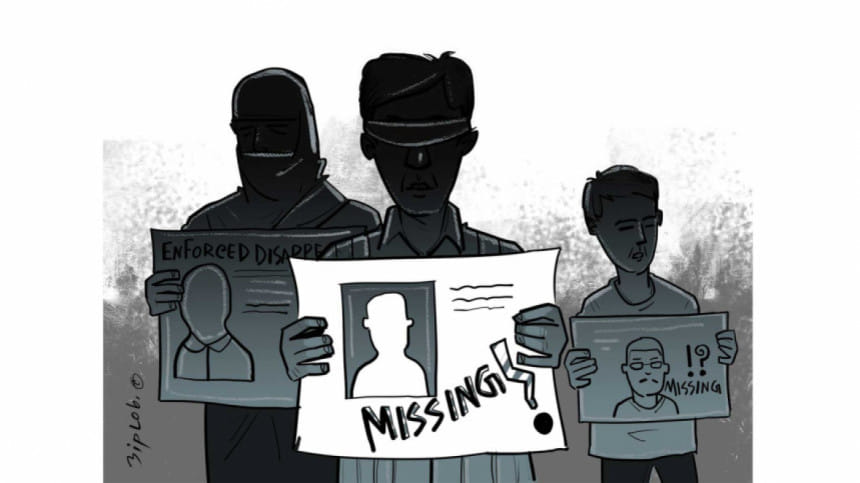End impunity, ensure genuine accountability

The United Nations Working Group on Enforced or Involuntary Disappearances has called on Bangladesh to end the widespread impunity surrounding enforced disappearances and ensure genuine accountability from its military, law enforcement, and intelligence agencies.
In a report titled "Technical Advice on Bangladesh", published on June 25 following a four-day technical visit to the country, the Working Group expressed concern at the pattern of enforced disappearances and the lack of accountability for perpetrators.
The visit, held from June 15 to 18, was conducted by delegation members Grażyna Baranowska and Ana Lorena Delgadillo Pérez.
"The Working Group is deeply concerned by the continued widespread impunity for enforced disappearances. All security forces, including the army, DGFI, and Rab, should make a genuine commitment to accountability by cooperating fully with relevant mechanisms," the report stated.
It added, "The only way in which security institutions can regain the trust and legitimacy of victims and the population is through genuine accountability processes within these institutions."
The report emphasised that such accountability must begin with decisive and transparent actions.
It said, "A genuine accountability process entails the suspension of officials facing credible allegations of enforced disappearance -- including those at command and leadership levels -- pending the outcome of a full, independent, and impartial investigation and, where appropriate, prosecution; the preservation of evidence by the institutions who are investigating the cases of enforced disappearance; and a real coordination with the ICT and the Commission, including agreeing on the terms of real and effective cooperation that would have a result in terms of the searching of the people who are disappeared, and in terms of truth, justice and reparation."
It said, "Law enforcement institutions and military entities must serve as a model for the population in upholding the rule of law. This entails a commitment to preventing enforced disappearances, ensuring that those responsible are held accountable through justice processes, and fostering effective cooperation with the judiciary."
The Working Group also called for strong and independent oversight of investigations.
"The Working Group recommends establishing an independent oversight mechanism [with the participation of institutions, the academy, civil society and victims] to ensure that all the security forces and the army are investigating impartially and that appropriate disciplinary measures are taken against any personnel found to be involved in enforced disappearances."
It stressed the importance of ensuring fair trial standards in all judicial processes.
While acknowledging that the International Crimes Tribunal (ICT) had initiated criminal proceedings related to enforced disappearances, the Working Group noted that "the number of such proceedings remains alarmingly low".
The report recommended steps to strengthen the tribunal, including holding perpetrators accountable, even those in command roles; ensuring investigations are backed by strong legal and evidentiary foundations; providing the ICT with necessary resources; and establishing mechanisms to keep victims and society informed. It stressed that victims must be guaranteed participation and regularly updated on the progress of investigations and proceedings.
It said, "It is important to reveal and close all clandestine places of detention operated by intelligence, paramilitary, police or military forces, and investigate and prosecute identified perpetrators of enforced disappearances, torture and other crimes committed in such places."
The report also recommended legal reforms to ensure proper prosecution of rights violations.
"The Working Group also recommends foreseeing specific measures for the survivors of enforced disappearances, including access to justice and reparation, which must include legal and economic support. This is particularly relevant in view of the information received indicating that many survivors are facing criminal proceedings that have been unjustly initiated, particularly under the 2009 Anti-Terrorism Act, as a form of harassment, without these investigations having any real factual basis."
The Working Group recommended reviewing cases brought against survivors of enforced disappearances, including those under the Anti-Terrorism Act.

 For all latest news, follow The Daily Star's Google News channel.
For all latest news, follow The Daily Star's Google News channel. 



Comments